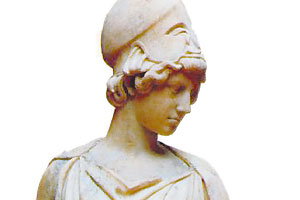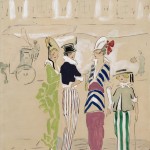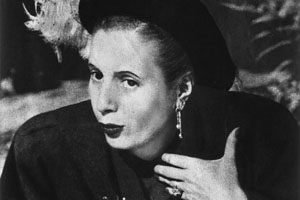After its victory in the Battle of Salamis in the mid 5th Century B.C., Athens gained prestige and the foundations of a powerful empire were laid. Sparta, on the other hand, was left isolated. Pericles, who ruled Athens for over 30 years (461-429 B.C.), was responsible for the most magnificent period in classical Greece.
He developed the process of political democratization started by his predecessor, Ephilates, and stimulated economic and cultural life in the Polis. Furthermore, he turned Athens into the most beautiful city of the classical age, with works such as the reconstruction of the Acropolis, a sacred site where the Parthenon was located, and of the main Athenian temples. He also saw to the construction of the «Long Walls» for the defense of the city. These walls linked the city with its new port, the Piraeus.
The democratic government
At the beginning of the Golden Age, Athens was governed by ten strategoi who were generals elected every year by the ten tribes of citizens.
These strategoi prepared war campaigns, received the envoys of other peoples and led the government. During the rule of Ephialtes as chief of the democratic party, Pericles was his assistant and later succeeded him in the position.
From that moment on, Pericles’ skills as a gifted orator became known. Such skills meant he became very successful, mainly in the Assembly. Among his achievements was obtaining access to public positions (called thetes) for citizens lacking money and power. Another great triumph of his rule was the establishment of the mistoforia, which was a special payment for citizens who attended the Assembly. Through this system, which was a complete success, Pericles ensured that people always filled the Assembly.
Day to Day Life
Under Pericles, Athenians lived modestly and without great luxuries, as there were no citizens with enormous wealth. The economy was based mainly on maritime trade, although agriculture and craft related industries were also important.
Education took place at home until children turned seven, when they were sent to school. There they learnt reading, writing, calculus and music. Physical Education classes, where children were prepared for military service, were also compulsory. At the age of 18 men entered the navy and learnt to handle weapons.
Athenian society was a patriarchy, that is, all rights and advantages were granted to men and only they gained positions of power, while the role of women was limited exclusively to looking after the household. There were, however, free and independent women, called hetaerae. Besides being wives, they were also known for being highly cultured and influential in intellectual and political circles. However they also posed a threat to the conservative customs of Athens. Pericles’ wife, Aspasia of Miletus, was one of these women.
The state also held great religious celebrations for the people. The most important of these celebrations were the celebration of the Panathenaia, held to honour Athena, and the celebration held in honour of Dionysus.
The arts and literature
Culture and arts reached their peak during the 5th and 4th Centuries B.C. In architecture, religious works such as temples and sanctuaries dominated. The most important constructions during this period were the Temple of Zeus in Olympia, the Temple of Apollo in Delphi and, maybe the most outstanding, the Acropolis. Among the most well known sculptors is Phidias, the sculptor of two chryselephantine statues: Athena, located inside the Parthenon, and Zeus in the Sanctuary of Olympia. Other important sculptors were Micon and Polikleitos.
Democritus rose among the great thinkers, with his atomic theory of the universe, and so did the sophists, teachers that gave lectures about different fields of science in exchange for a fee. Among the most important sophists were Protagoras of Abdera and Prodicus of Cheos. Historians such as Herodotus who wrote about the Persian Wars; Tucicides, the writer of the greatest work on the Peloponnese War in all antiquity; and Xenophon, who left a book on the first years of the 4th Century B.C. also became prominent.








 Muere Evita
Muere Evita